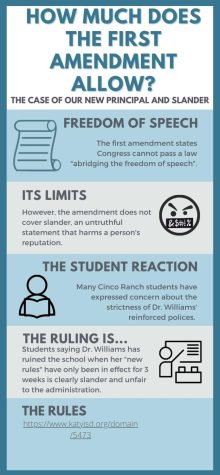Lost in Translation
There was a time when education was a privilege meant only for the elite. Tutors were hired for children of wealthy families, teaching two to three languages, while the rest of the population could not even write their names. Today, education is a requirement for kids between the ages of six and 18 in Texas. But forcing education, in a system where standardized test scores and GPA’s determine intellect, does not set up a road to genius. It instead coerces concept based knowledge, not hands on and in most cases, not even career focused.
Some of the best minds of our age, such as Mark Zuckerberg and Steve Jobs, dropped out of college. If the whole purpose of modern school is to manufacture a stream of Zuckerbergs it is not working, simply because the way we approach education is wrong. Good, great, minds of the world have to enjoy what they do, and that all starts with learning with a passion.
Education has become more mechanical than ever, with competition for college admissions at an all time high. Most students have no idea why they are missing out on hours of sleep and personal growth for advanced placement courses that they have no interest in. They just know they have to do it, they see no alternative, because if they are not in the best college possible they see no future. It is the job of educators and parents to pull the students back and let them know that numbers and statistics can not define them. Students need to know that testing is important, but it should not be the goal of students to just learn material for the test, letting it escape their minds two weeks later, only to be revised for a final or Advanced Placement exam. People become successful despite their performance on high stakes tests. When and who decided two or three digit numbers define intellect?
Increased pressure seeps back to teachers as well, they are expected to help students meet a score requirement on standardized achievement tests, leading to concentrated lesson plans or simple memorization instead of conceptual understanding.
Children need a hands-on environment,where learning occurs naturally. Rethinking textbook passages and regurgitating them in a multiple choice format is not the proper way to tend to the needs of a growing, learning mind. Skills that require memorization, such as formulas and vocabulary words, are necessary to education, but it is the emphasis that we give to these tools that will be our downfall.
The world’s leader in education, Finland, embraces an individualized, relatively low stress environment. Teachers are given more leniency in their lesson plans, partly because they are not preparing students for standardized tests.Children do not start school until the age of 7 and homework is practically unheard of until high school, as an emphasis is not put on preparing students for testing, but for life. Though the Finnish education system may not be perfect, it is the closest thing to a model we have when modifying our education system to produce students that meet the needs of a fast paced, global economy, without the side effects of extreme stress, like depression, that pervade our nation’s top universities.
The road to instilling a love of learning in students is far from easy, but when it comes down to it, the very base of our system has come unhinged. And we must be the mechanics, or pay the price when the whole machine breaks down.

The year is 1997.
Beyonce is known as Beyonce Knowles, member of Destiny's Child. The day is March 15, Williams James Adams, soon to be known as Will...

![Tips for Studying Finals [INFOGRAPHIC]](https://crhscountyline.com/wp-content/uploads/2022/12/Studying-for-Finals-475x267.jpg)


